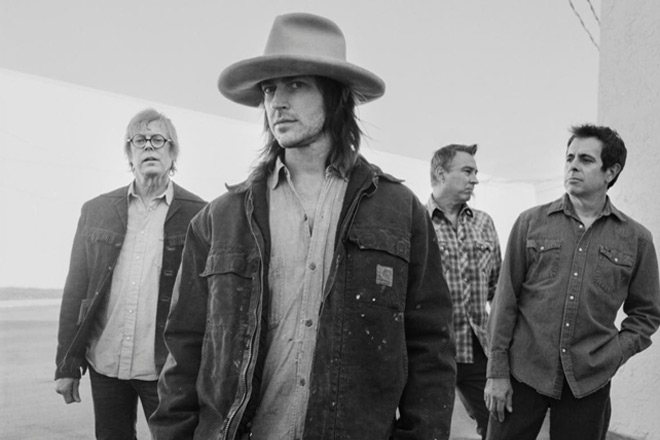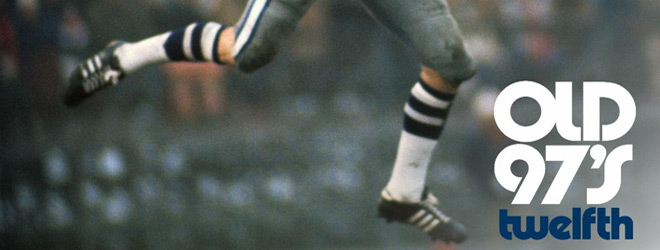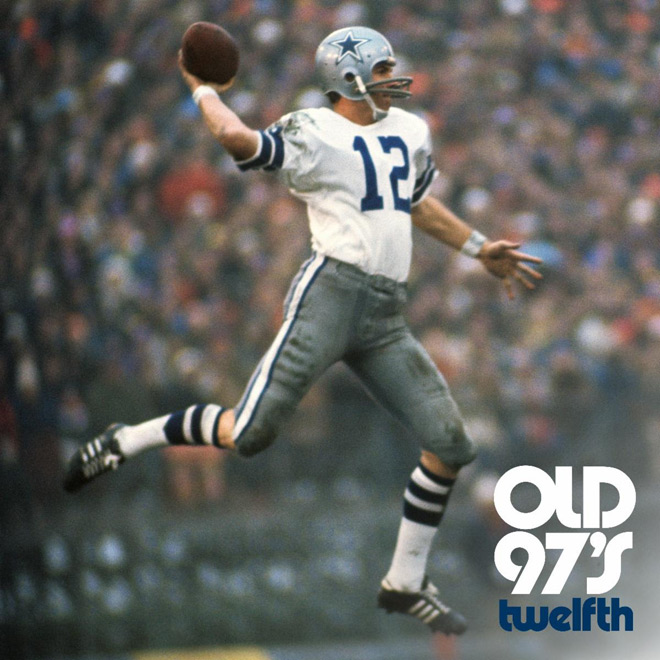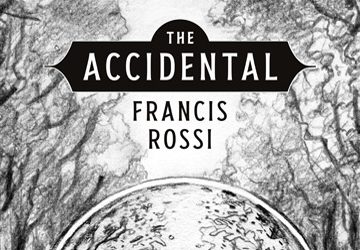
Taking their name from the famous ballad, “Wreck of the Old 97,” itself penned after the crash of a mail train, the original lineup formed in 1992 and steams along still: Rhett Miller on lead vocals and rhythm guitar, Murry Hammond on bass guitar and acoustic guitar, Ken Bethea on lead guitar, and Philip Peeples on drums; all members handle backing vocals, and Hammond and Bethea take the lead microphone at times. Childhood hero Roger Staubach, wearing number 12 for the Dallas Cowboys, adorns the cover, his arm arched and his body aflight, focused on making a play downfield.
The original four have not been without their issues, with Peeples and Bethea each undergoing major surgery in the last few years, as well as Miller finding sobriety in the same period. Despite these detours, Twelfth finds the Old 97’s on a familiar route: the airy vocals of Miller, still holding time frozen in the Nineties, backed by swinging bass and Honky-Tonk Alt-Country guitar, with a chorus of voices ready to lend support as needed. The clever lyrical wordplay is also abundant–”I like you better than playin’ guitar/ and that’s pretty much the best thing I’ve found so far” comes through on “I Like You Better,” while “Belmont Hotel” offers, “Our love is like the old Belmont Hotel/ it was in ruins, now it’s doin’ quite well“; these words come across with such sincerity, it is easy to dismiss their goofiness.
It sounds like Hammond is taking one of his lead vocal turns on “Happy Hour,” and the twangy guitar bends in the background help bring the track along. Miller mentioned to Rolling Stone a fear that his recent sobriety would be the case of the Biblical Samson having his source of power trimmed. (There is a bit of irony to this example, being as Samson was also a teetotaler.) For better or worse, that does not seem to be the case here; if Miller was struggling to keep the band’s trademark sound alive in his darker years—and there is no need nor way to dismiss those struggles—the change here is not as much lyrical or musical as it is emotional.
However, there are a few droopy tracks that drag the album to a bit of a halt. As mentioned, “Belmont Hotel” may be a lyrical exploration of failure and redemption, but as a song, full stop, it almost sounds as if it is simply going through some pre-designed motions. (Then again, perhaps that is the point.) “Diamonds on Neptune” is also a little oddly placed, and paced. On the other hand, while “Confessional Boxing” may struggle to make straight-faced sense, lyrically it packs such a fun punch (pun intended) that it is hard not to go back to again and again. Later, the swift gallop of “Bottle Rocket Baby” equals this feeling, as the track is just a delightful jaunt aboard a train to nowhere in particular.
The album ends on a bit of a downer, as closer “Why Don’t We Ever Say We’re Sorry” uses some dampened, distant vocals over a somber tent revival that brings the immediacy of earlier tracks to a somewhat dismal close. Twelve albums and nearly three decades in, Old 97’s may be running familiar routes and making the same stops, but they do so with an eagerness and honesty that earns respect and admiration. The ride may be close to the same each time, but perhaps that is the goal. As with Staubach, perhaps the focus and ability to make the same plays over and over is itself the skill. For all of the above, Cryptic Rock is pleased give Twelfth 3.5 out of 5 stars.






